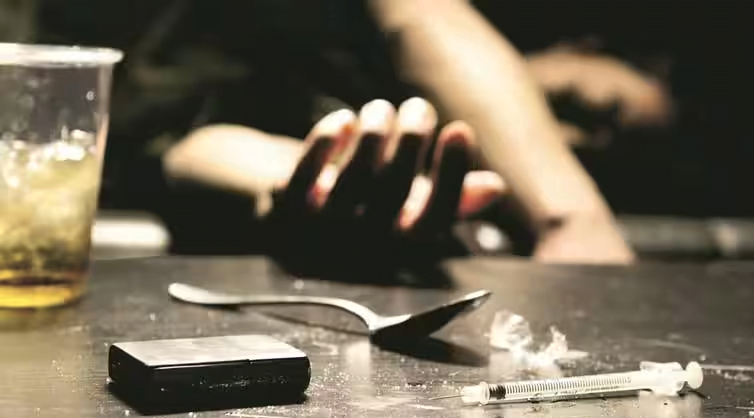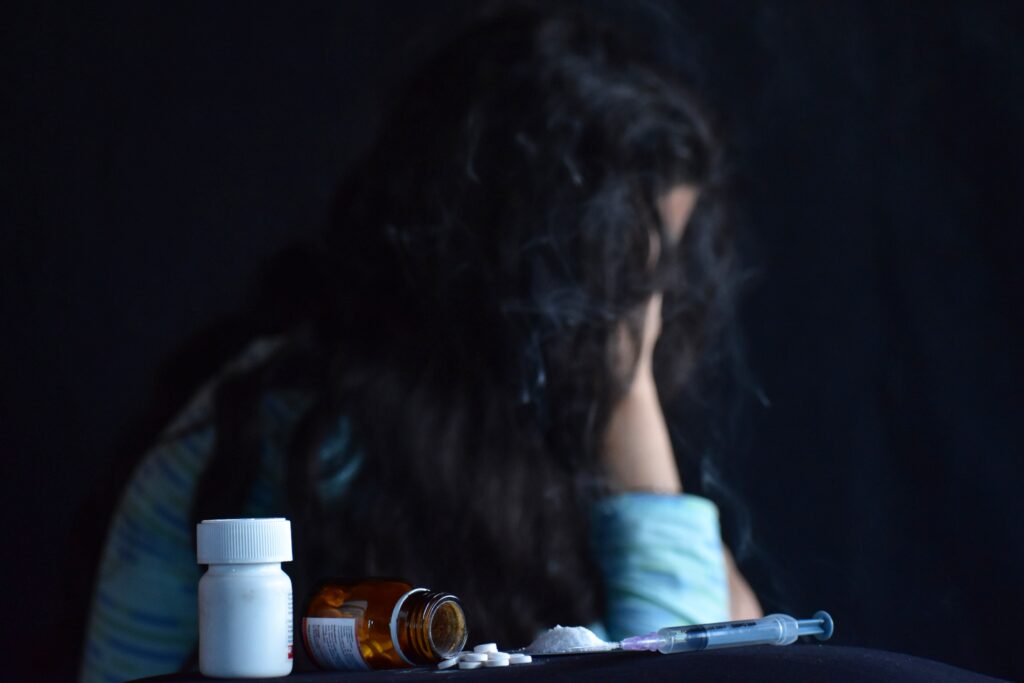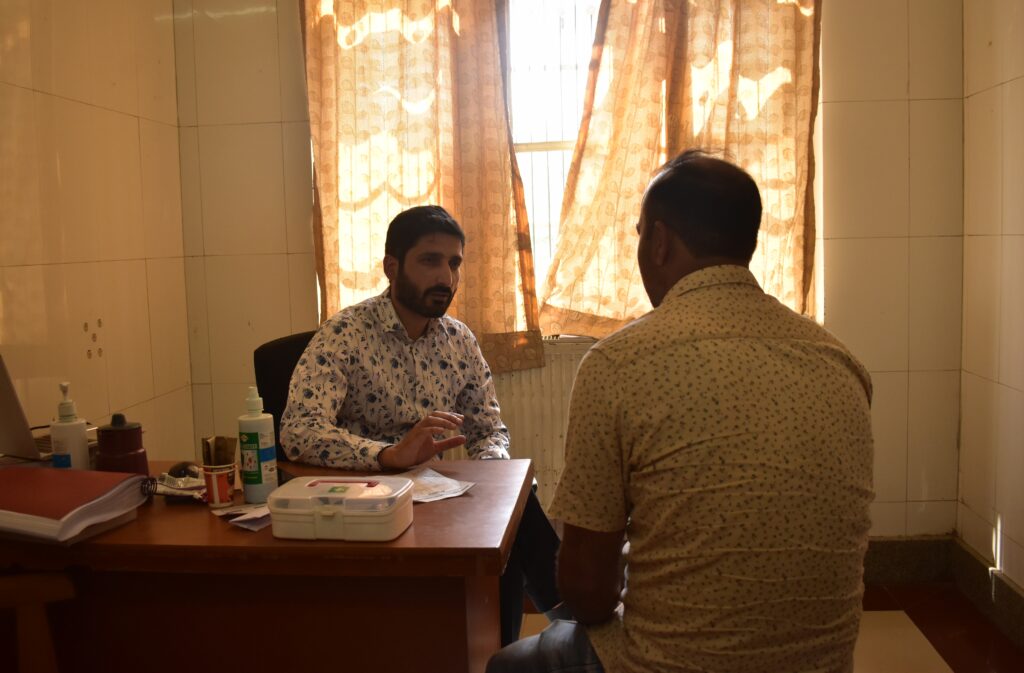Trigger warning: Mention of sexual abuse, suicide and substance abuse
In the shadow of the towering Himalayas lies the valley of Kashmir, currently grappling with a menace that claws at the heart of its communities –substance abuse.
In the narrow alleyways and lush orchards, stories of despair and desperation unfold. The verdant landscape hides a darker truth, as the youth of Kashmir find solace in substances that offer fleeting respite from the turmoil that surrounds them. Official data paints a chilling portrait of this hidden crisis. An estimated 36,000 women find themselves ensnared by the siren song of cannabis. These numbers, stark in their revelation, hint at the shadows that dance just beyond the veil of this idyllic land.
Yet, it is not just the spectre of cannabis that haunts these alleys. In the quiet corners, away from the watchful eyes of society, 8,000 women grapple with the chains of opioids. Sedatives, too, offer a fragile sanctuary to another 8,000 women, their stories etched in the lines of careworn faces, concealed beneath layers of societal expectations.
In the narrow alleyways and lush orchards, stories of despair and desperation unfold. The verdant landscape hides a darker truth, as the youth of Kashmir find solace in substances that offer fleeting respite from the turmoil that surrounds them.
Beneath the veneer of serenity, a smaller percentage turn to cocaine, amphetamine-type stimulants (ATS), inhalants, and hallucinogens. These fragments of data are a chilling reminder of the breadth of this crisis, the breadth of the struggle that weaves through the lives of women in Kashmir.

It has been a long and painful battle for 25-year-old Srinagar-based lawyer Iqra*. Her life was in shambles after she was sexually abused in her ninth class and the incident left its mark on her, pushing her into depression and substance abuse.
Iqra, who started taking substances in tenth class, tells FII, ‘Due to that trauma first I started taking sleeping pills which relaxed me then I started smoking on a daily basis and my friends supplied me with these. Taking pills and smoking was my routine at that period of time as this was the only thing that kept me away from the thoughts of that incident.’

‘I quit taking substances and smoking for a certain period of time but in 2023, I began using them again as I felt overwhelmed by thoughts of that tragic past. I started taking heroin but soon my family got wind of my activities and took me to a rehabilitation centre for counselling,’ Iqra states further.
‘The dark memories still overwhelm me at times, I am depressed, so I cut my skin in an attempt to harm myself and even I tried to attempt suicide. People used to talk about me and I faced a lot of problems in my profession because of the cuts on my body. People ask me questions about these cuts but I reply to them with false answers,’ Iqra added.
Like many substance abusers, Iqra also wants to restart and go back to her normal life. ‘I want to be free, but I know it won’t be easy. The abuse changed my life forever and now I’m stuck in an endless cycle of depression and addiction,’ she says.
Despite the hardships, Iqra refuses to give up on her dream of living a normal life. She is committed to overcoming her addiction and rebuilding her life.

Mansha* 29 from Budgam, while speaking with FII, said, ‘Five years ago, during my college days, I made a decision that forever changed the course of my life. Driven by curiosity, I started experimenting with drugs. It all began innocently enough, as a friend offered me substances during a picnic. Little did I know that this seemingly harmless act would spiral into a battle I could no longer control.’
Saying in a painful manner, ‘I found myself addicted, and the consequences of my addiction have been devastating. It has derailed my life in ways I could have never imagined. Not only has it consumed my finances, but it has also taken a toll on my relationships. The people who once cared about me now struggle to recognise the person I have become,’ Mansha reveals.
‘As time went on, my addiction grew stronger, and I found myself spending a significant amount of money on drugs. The exact amount is difficult to calculate, as I often resorted to borrowing money just to sustain my habit. At first, I relied on friends who were also experimenting with substances, but as my substance abuse became a routine, I turned to dealers for my supply,’ states Mansha.
The weight of addiction bore down on her, distorting every dream she once held. Each day is a battle, a struggle against the insidious pull of substances that promised an escape but only led to deeper despair. As she spoke, her voice trembled, carrying the weight of regret and longing for a life she once knew. Mansha’s story is a poignant reminder of the devastating toll addiction could take on a person’s spirit, leaving them with the arduous task of rebuilding from the ruins.
Dr Yasir Rather, professor at the Department of Psychiatry at Government Medical College, Jammu And Kashmir, states, ‘Substance addiction in Kashmir has reached alarming proportions, resembling an epidemic with approximately 250 patients visiting the outpatient department (OPD) on a daily basis. While the number of female patients is relatively lower than males, it is still a matter of great concern because sadly, many women refrain from seeking help due to societal taboos and the fear of judgment, consequently perpetuating the ruin of their lives.’

Dr Rather, further adds, ‘In our research, we have discovered that there are various reasons behind women turning to substance. One prevalent factor is the fact that many women have experienced abuse, harassment, or physical torture, leading them to seek solace in substance. The substances commonly used by women include cannabis, medicinal opioids, and, in some cases, heroin, particularly among those suffering from depression.’
Dr Rather urges for an immediate comprehensive intervention in the grim situation because he believes if not addressed on time, ‘these women are later used for trafficking of substance.’
‘It is crucial for us as a society to address this issue promptly and provide a supportive environment for women struggling with substance addiction. We must work towards breaking the stigma associated with seeking help and ensure that comprehensive rehabilitation programs are available to empower women to overcome their addiction,’ Dr. Rather states firmly.
*names have been changed






